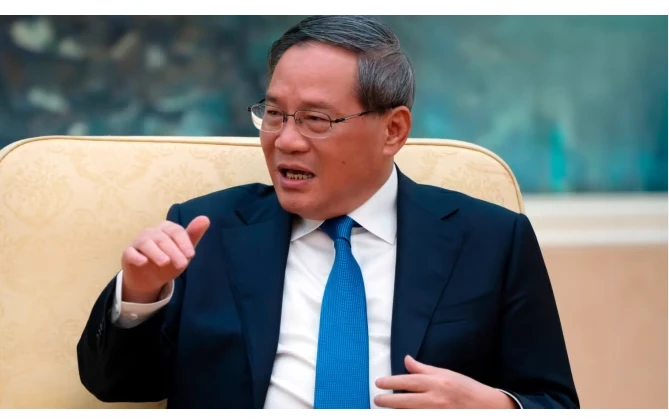Chinese Premier Li to visit Australia from this weekend

Stay tuned with 24 News HD Android App

China's Premier Li Qiang will travel to Australia this weekend on the highest-ranking visit in seven years, Canberra announced Tuesday, as the two nations' trade ties improve despite their strategic rivalry in the Pacific.
Li's four-day trip, which begins Saturday, comes after Beijing lifted most of the trade barriers it had imposed on Australian exports, including coal, timber, barley, and wine.
Rock lobsters are one of the last barred Australian exports yet to re-enter the lucrative market.
"Premier Li Qiang's visit to Australia is an important opportunity to engage directly on key issues for both our nations," Prime Minister Anthony Albanese said.
"China is Australia's largest trading partner and our economic relationship continues to bring substantial benefits to both our countries."
Li is also scheduled to visit New Zealand sometime this week.
China slapped trade sanctions on Australia in 2020, angered by Canberra's exclusion of Huawei from its 5G network, new foreign interference laws and its support for an international probe into the origins of Covid-19.
But relations have warmed since Albanese's centre-left government took power in 2022, adopting a less strident diplomatic tone than its conservative predecessor.
Albanese was given a gala welcome to Beijing in November last year, with a smiling President Xi Jinping promising Australia and China could become "trusted partners".
On defence, however, Australia has pursued a tight alliance with the United States as it seeks to parry China's expanding diplomatic and military influence in the Pacific region.
"Australia continues to pursue a stable and direct relationship with China, with dialogue at its core," Albanese said.
"We will cooperate where we can, disagree where we must and engage in our national interest."
- Pacific strategy -
In the South Pacific, Canberra and Washington were jolted into strengthening their ties with island nations after Beijing signed a secretive security deal with Solomon Islands in 2022.
The Pacific Islands, while small in population, are replete with natural resources and sit at a geostrategic crossroads that could prove vital in any military dispute over Taiwan.
Australia also supports the United States and Asian countries in opposing Beijing's sovereignty claims over the South China Sea.
And it has provoked Chinese ire by joining a landmark Australia-UK-US defence agreement, AUKUS, that was revealed in September 2021.
The accord notably aims to supply Canberra with a fleet of stealthy nuclear-powered but conventionally armed submarines to patrol the region's waters.
Australia hopes to have eight nuclear-powered vessels in the water by the 2050s -- a mix of the new AUKUS-class subs built at home and in the UK, and Virginia-class vessels purchased from the United States.
In a national defence strategy unveiled in April, Canberra said the submarines were at the heart of a higher-spending policy aimed at protecting the island continent's trade and access to air and sea.
